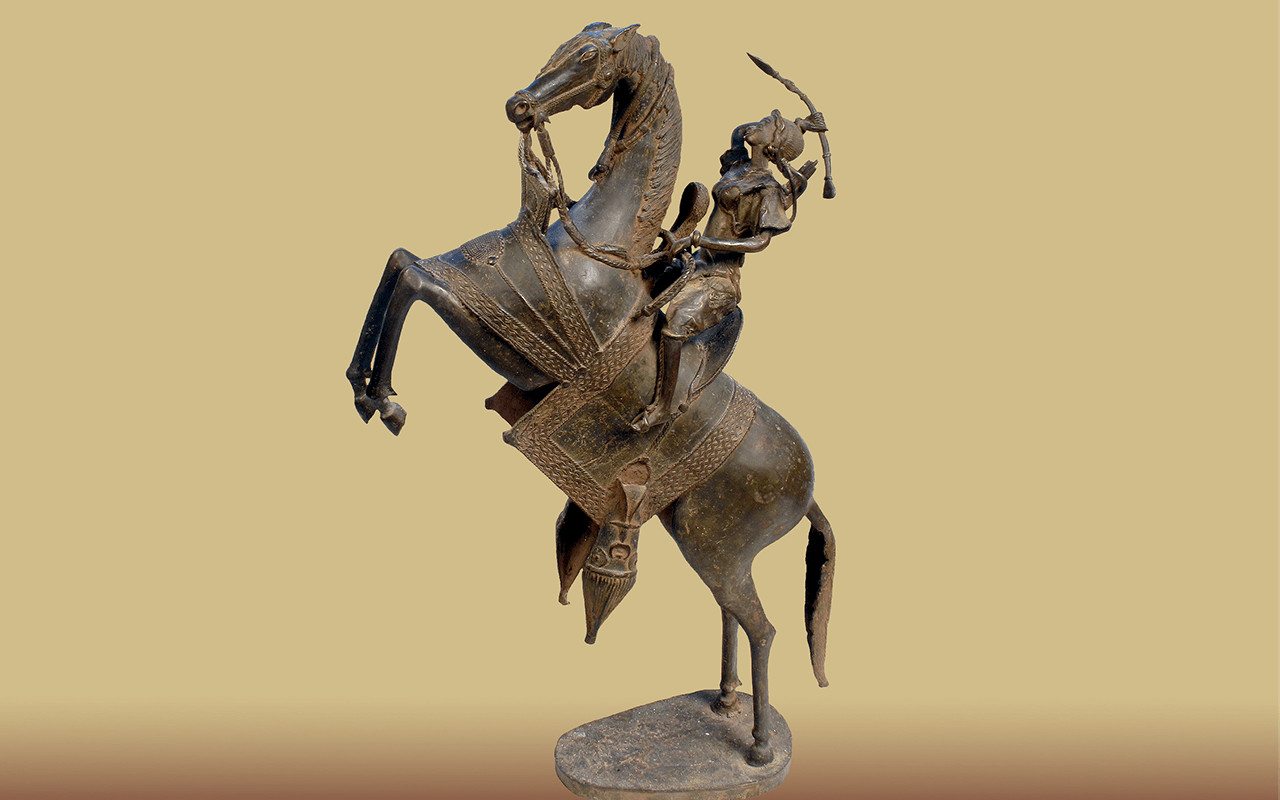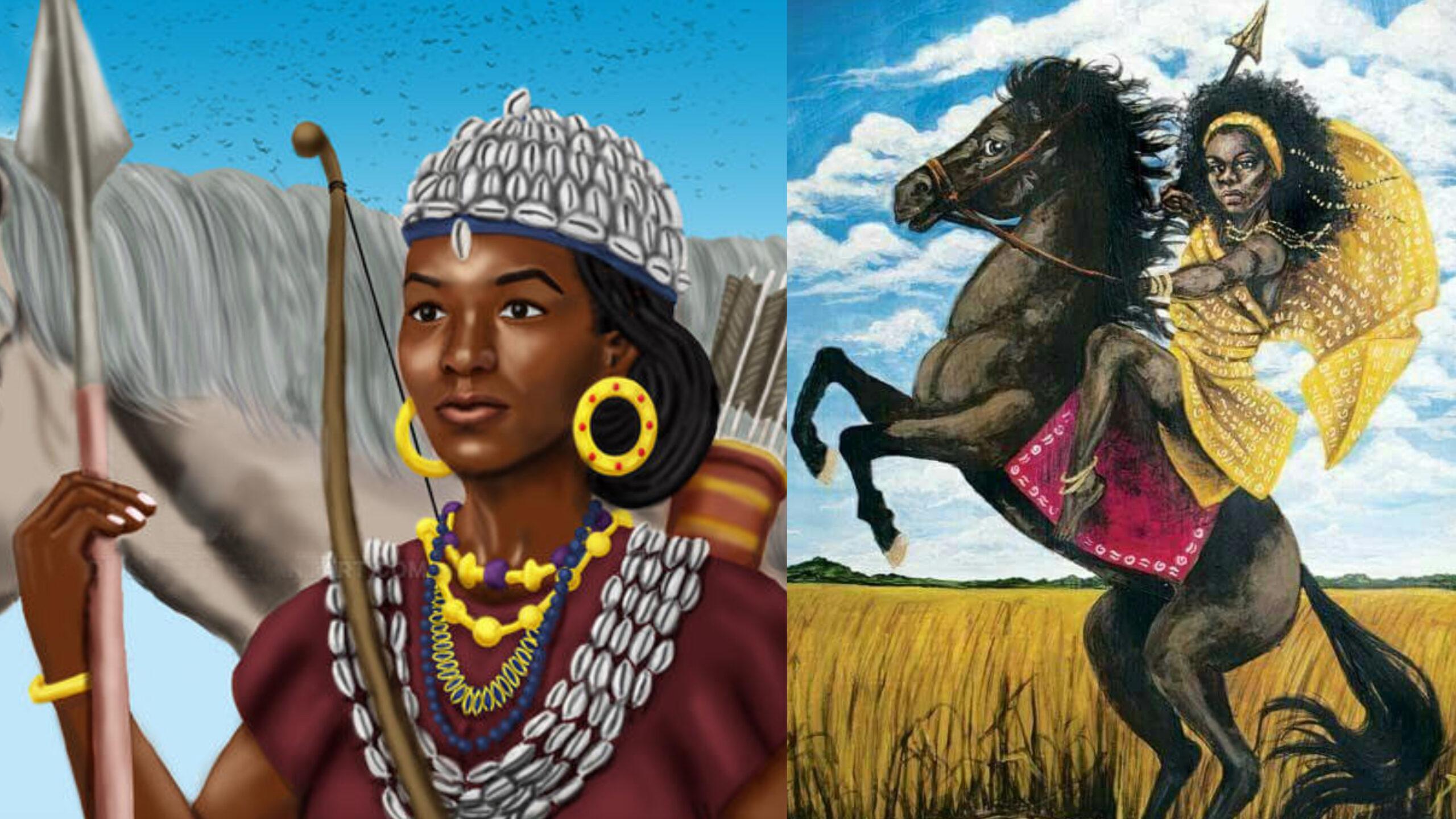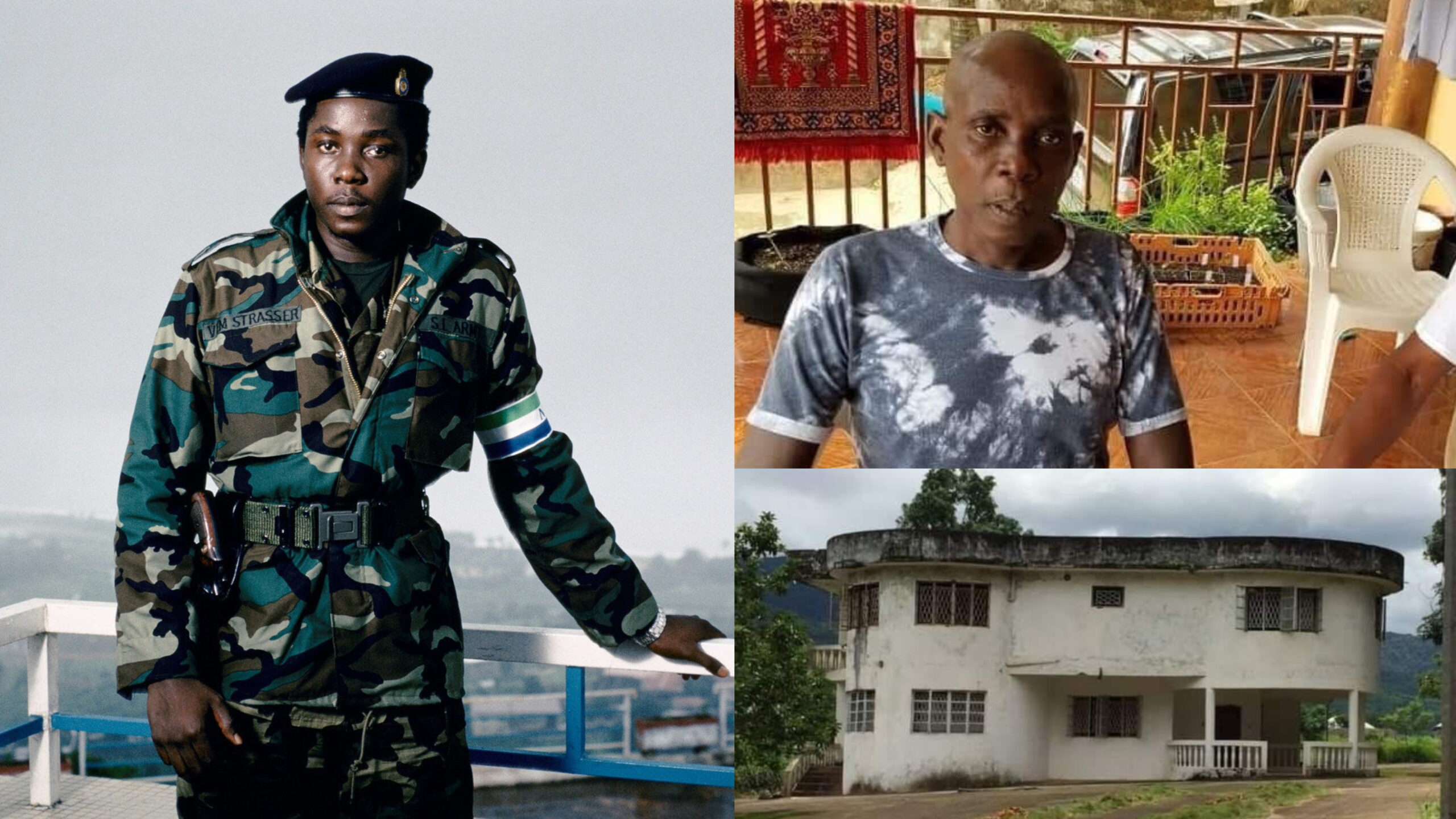Role models are significant. In many contexts, “trial and error” can be a good way, but learning from other people’s experience is also essential.
She had no blind acceptance of rules or authorities but had the courage to follow her own path. She had the courage to engage others in order to succeed, had the courage to love, and she knew that she was good at what she did. She had the courage to love what she succeeded.
Princess Yennenga is seen as the mother of the Mossi culture, and many statues and memorial marks of her can be seen in Ouagadougou, the capital of Burkina Faso. Parallels can be drawn between Princess Yennenga and heroines in various other cultures, for example Jean D’Arc and Athena.
Many versions exist of the 14th century legend of Yennenga. This is one of them.
The story

King Nedegea of West Africa reigned over a wealthy kingdom. He had a young and lovely daughter, too. A cherished princess. She was permitted to lead her own troops because she was courageous and exceptionally skillful with spear and bow, as well as a better rider than both her brothers and many of the king’s warriors. She was already helping her dad battle the enemy who was attempting to steal the king’s riches at the age of 14.
Since the abilities of Yennenga were so great and therefore of the utmost importance to the kingdom, her father would not allow her to marry.
She planted a field to make it clear to her father that she was not able to abstain from family life, although she did not harvest it, but let it go to waste instead. She explained that she was feeling this way.
Instead of softening the attempts of Yennenga to justify her feelings, her father grew furious and decided to lock her up.
Yennenga had several friends among her father’s guards, as she was a beloved princess. One of her father’s horsemen helped her flee, dressed up as a man, on horseback. They rode through the night together, but were attacked by the enemy. Her helper had to pay with his life.
Yennenga rode on northwards alone.
One night, when she and her horse were tired, they saw a house after crossing a turbulent river. Riale, the hunter of elephants, lived in that home. He saw through Yennenga’s veil immediately and fell in love.
The couple had a son called Ouedrago, meaning stallion, because it was Yennenga’s horse that brought her to Riale and to love. In Burkina Faso, which is located where the Mossi kingdom is still strong in West Africa, Ouedraogo is a popular surname to date.
Yennenga symbolizes much that is of great importance even today, in West Africa as well as in the rest of the world. Yennenga was young, beautiful and loved by her people and her father. She had both beauty and skill.
Yennenga symbolizes much that is of great significance even today, in West Africa as well as in the rest of the world. Yennenga was young, she was beautiful being loved by her people and her father. She had beauty along with skill.
Yennenga embraced the roles of gender and she was allowed to develop her talents. She was of great importance to the security and development of her country. Yennenga was brave and had the strength of a powerful will. In her life decisions, she pursued dialogue, behaved decisively, and was motivated.
Credit: Yennenga Progress
 The African History Truly African
The African History Truly African

